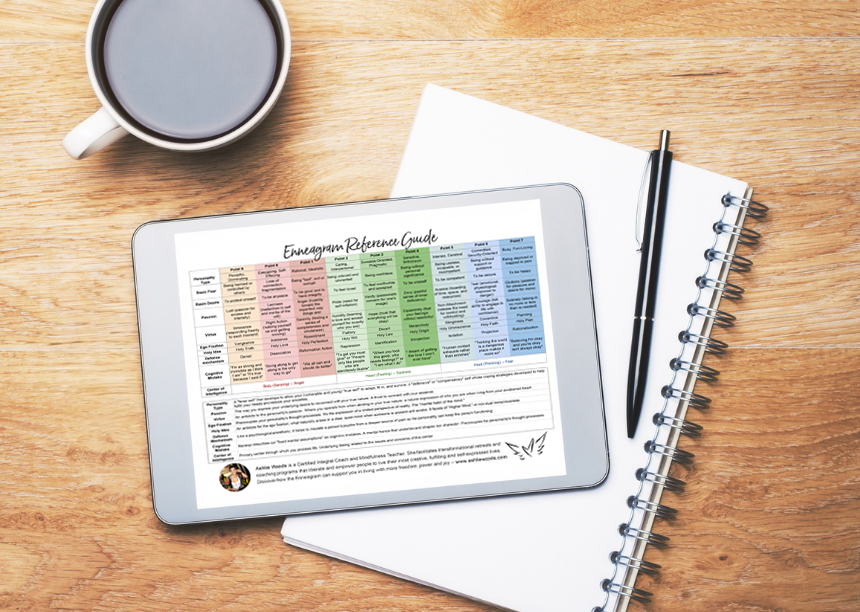Self-Preservation Six — "Warmth"
In the Self-Preservation Six personality, fear manifests as insecurity. Self-Preservation Sixes have a fear related to survival-a fear of not being protected that fuels a driving need for protection through friendship and other kinds of alliances with others. This is the most phobic of the three Six subtypes; this is the Six subtype who feels fear the most.
Perceiving the world as dangerous, Self-Preservation Sixes seek friendly connections and alliances, and to do this they endeavor to be friendly, trustworthy, and supportive-as good allies are supposed to be. As Naranjo clarifies, "not trusting themselves enough, they feel alone and incapable without outside support." Self-Preservation Sixes want to feel the embrace of the family, to be in a warm, protected place where there are no enemies. They search for an "idealized other" for protection, and they can have issues that look like separation anxiety. Like a child who needs to hold on to the mother, these Sixes don't feel confident in defending their own self-interests and survival.
This quick reference guide captures the various aspects of each Enneagram Type including attributes, basic fears, desires, passions, virtues, fixations, defense mechanisms, and more!
These Sixes seek to escape anxiety by seeking the security of protection; therefore, they become dependent on others. They have a passion for compensating for the fear of separation, which manifests as warm and friendly temperament. Their driving need is therefore for something like (neurotic) friendship or warmth, which makes this subtype the warmest of these Sixes. They tend to be in a good mood and have a generally pleasant disposition. They look for a bond of intimacy and trust in their relationships, and they fear disappointing others, especially those who are closest to them. Being warm is their way of getting people to be friendly so they won't be attacked.
Self-Preservation Sixes fear anger, aggression, provocation, and confrontation. Being afraid of other people's aggression means they can't let their own aggression out. As Naranjo explains in describing this Six, making people like you means being good, and being good means not being angry. Naranjo asserts that "the taboo on aggression that results from the needs of dependency weakens this Six in the face of others' aggression and contributes to their insecurity and their need for external support."
There is a lot of hesitation, indecision, and uncertainty in the Self-Preservation Six personality. These Sixes ask many questions, but they don't answer any. They doubt themselves, and they doubt their doubt. Feeling uncertain and unable to find a satisfying sense of certainty, Self-Preservation Sixes have a difficult time making decisions. They see the world in terms of ambiguity-as "gray" rather than "black and white." People with this subtype can't dispel their sense of doubt and uncertainty. Because of their fundamental sense of insecurity and their habit of questions and doubting, they never feel ready or able. They also feel a lot of blame and guilt, even assuming or feeling the blame of others.
There are two realities for Self-Preservation Sixes: an external reality of warmth, tenderness, serenity, and peacefulness, and an inner reality of fear, guilt, anguish, and torment. Their head and heart are separated-they feel heart-centered on the outside, but are head-centered internally.
As the most phobic of the three Sixes, the avoidant Self-Preservation subtype equates love with protection, and in looking for love they search for a source of security to compensate for an inner sense of insecurity. This Six wants to find a strong person to lean on, and they many be excessively friendly and giving as a way of preventing an attack from outside. In order to feel the strength they are lacking, the Self-Preservation Six attracts the affections or protection of somebody strong-the more forceful presence of another helps them to feel safer.
Self-Preservation Sixes can thus look like Type Twos in that they are warm and friendly and put a lot of energy and attention into the development of relationships with others. Like Type Twos, these Sixes tend to lead with affection and accommodate others as a way of forging connections-but unlike Twos, their deepest motivation is to create safety, not to gain approval in support of pride.
Linda, a Self-Preservation Six, speaks:
I live in a small community governed by a homeowners' association. Initially, I was comforted that we could come together as a group to create guidelines and rules that I assumed would make for less conflict between neighbors and more security. I made it a point to meet and establish a comfortable relationship with each of them. I volunteered to be on the board, and even offered to lend my professional expertise to work with the entire group on our community values and vision.
Over time, though, I saw that compliance to the governing principles was lax and enforcement was selective or nonexistent. Four years ago a situation arose in which my rights were being violated by a neighbor, and for reasons unbeknownst to me, the board sided with the neighbor. In one fatal stroke my carefully natured allies became dangerous enemies, rendering me defenseless because of my fear of invoking further attack should I try to defend myself or my interests.
My shock and anger at their betrayal quickly devolved into a sense of guilt, shame, and anxiety so profound that I could no longer attend homeowner meetings, speak with my neighbors, or even walk around the block because of my fear of being "attacked." I became obsessed with phantom conversations in my mind, composing just the right speech that would win them back or what I would say or do to these people for revenge, if only I had the courage to do so. On the outside, I try to act friendly, but on the inside I feel fearful and contemptuous. This dissonance is exhausting. All I want to do now is sell the house and escape from this place and these people.
Specific Work For The Self-Preservation Six on the Path from Vice to Virtue
Self-Preservation Sixes can travel the path from fear to courage by saying things directly instead of being vague; making decisions instead of staying lost in question; and having the fortitude to fulfill their own needs rather than always looking to others for support and protection. If you are a Self-Preservation Six, you can work toward embodying courage by giving voice to your aggression in conscious, constructive ways. Take the risk to learn that you can draw on your own aggression and confidence more actively in support of yourself. Challenge yourself to break out of the compulsion to always need to be good and docile, and practice allowing yourself to be angry. Have the courage to say more clearly what your really think, especially when your fear others might disapprove. State your opinions and preferences, not from a place of reactivity under duress, but from a calm place of confidence that's more connected to your power and strength. Risk being "bad," getting mad, and expressing more of who you are without apology or doubt. Have the courage to own your power and authority in the world without needing to project it onto others. Rather than expecting support from others, own your many positive qualities such that you can be more confident in yourself. Work to have a more conscious sense of your strength and strength of purpose, knowing you have the courage to support yourself in the world in whatever ways your might need to.
Sourced with permission from The Complete Enneagram by Beatrice Chestnut.
Type 1 Type 2 Type 3 Type 4 Type 5 Type 6 Type 7 Type 8 Type 9
Ashlie Woods
Director of Business Division & Lead Coach at Sourced
Ashlie is a transformational coach, retreat leader, dance lover and Enneagram enthusiast. She is passionate about facilitating experiences that liberate and empower people to live their fullest, more creative and self-expressed lives. She believes there is a life that wants to be lived through you and a purpose only you can fulfill.
She spent 6 years designing and delivering corporate training programs focused on leadership development and company culture before making the bold leap to start her own retreat-based business.
Ashlie now supports heart-centered business owners (coaches, consultants, creatives, healers) to market, sell and deliver their transformational work in the world using their unique magical gifts.




